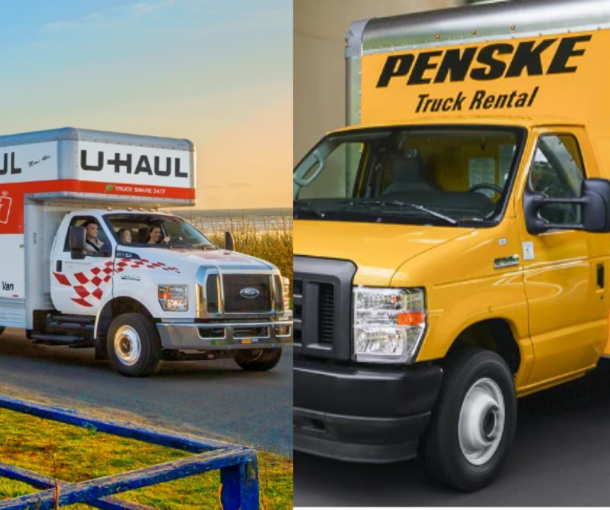Understanding the Costs of Hiring a Moving Company

Moving to a new home can be an exciting adventure, but it often comes with a hefty price tag. One of the biggest expenses you’ll face is hiring a moving company. Whether you’re relocating across town or across the country, understanding the costs associated with professional movers can help you budget effectively and avoid unexpected surprises.
In this comprehensive guide, we’ll break down the various factors that influence moving costs, explore different types of moving services, and provide tips on how to save money during your move. By the end, you’ll have a clear picture of what to expect when hiring a moving company and how to make the most cost-effective decisions for your specific situation.
How Much Does a Moving Company Cost?
When it comes to hiring a moving company, costs can vary widely depending on several factors. On average, you can expect to pay anywhere from $450 to $12,700 for professional moving services. This broad range reflects the diversity of moving scenarios, from small local moves to large cross-country relocations.
For a typical move, the average cost falls around $1,625. However, it’s important to note that this figure can fluctuate significantly based on the specifics of your move. Factors such as the distance of your relocation, the size of your home, the amount of belongings you’re moving, and the level of service you require all play crucial roles in determining the final price.
To give you a clearer picture of potential costs, here’s a breakdown of low, mid, and high-range moving expenses:
| Cost | Local Move (<100 miles) | Long-Distance Move (> 100 miles) |
| Low | $450-700 | $1,600-2,500 |
| Mid | $700-1,500 | $2,500-5,000 |
| High | $1,500-2,800 | $5,000-12,000+ |
Keep in mind that these figures are estimates, and your actual costs may fall outside these ranges depending on your specific circumstances. It’s always best to get personalized quotes from multiple moving companies to get the most accurate pricing for your situation.
Factors That Impact Costs of Moving Companies
Understanding the various elements that influence moving costs can help you anticipate expenses and potentially find ways to reduce them. Let’s explore the key factors that moving companies consider when calculating your bill.
Distance
The distance of your move is perhaps the most significant factor in determining cost. Local moves (typically defined as relocations within 100 miles) are generally cheaper than long-distance moves. This is because local moves usually require less time, fuel, and logistical planning.
For local moves, companies often charge an hourly rate for labor plus a flat fee for the truck and equipment. Long-distance moves, on the other hand, are typically priced based on the weight of your belongings and the distance they need to be transported. As you might expect, moving from New York to California will cost substantially more than moving from New York to New Jersey.
Location
Your specific location can also impact moving costs in several ways. First, the cost of living in your area affects labor rates. Moving in or out of a major metropolitan area like New York City or San Francisco will likely cost more than moving in a smaller town or rural area.
Additionally, the accessibility of your home can influence prices. If you live in a high-rise apartment or a home with narrow streets that can’t accommodate a large moving truck, the movers may need to use smaller vehicles or spend more time navigating logistical challenges. These factors can increase your overall cost.
Labor
The cost of labor is a significant component of your moving bill. Most moving companies charge between $35 and $80 per hour per mover. The number of movers required depends on the size of your home and the amount of belongings you have. A studio apartment might only need two movers for a few hours, while a four-bedroom house could require four or five movers for a full day.
Remember that labor costs don’t just cover the physical act of moving your items. They also include the time spent driving to and from your locations, as well as any time spent navigating difficult access points or assembling and disassembling furniture.
Packing
Many moving companies offer packing services as an add-on, which can significantly increase your total cost. Professional packing typically costs around $70 per hour per worker, with a minimum of three hours. While this might seem expensive, it can be a worthwhile investment if you have valuable or fragile items that require expert handling.
Here’s a rough estimate of packing costs based on home size:
- One-bedroom apartment: $300
- Two-bedroom apartment: $600
- Four-bedroom house: $1,000
If you’re looking to save money, you can opt to pack your belongings yourself. However, keep in mind that items you pack yourself may not be covered by the moving company’s insurance in case of damage.
Size of Move
The size of your move, typically determined by the size of your home and the amount of belongings you have, is a crucial factor in determining cost. More items mean more time spent loading and unloading, potentially more movers needed, and a larger truck required.
Here’s a general breakdown of how home size affects local moving costs:
- One bedroom: Average cost $450, typically requires 2 movers
- Two bedrooms: Average cost $700, typically requires 2-3 movers
- Three bedrooms: Average cost $1,300, typically requires 3-4 movers
- Four bedrooms: Average cost $1,900, typically requires 4 movers
- Five bedrooms or more: Average cost $2,900, typically requires 5 or more movers
For long-distance moves, the size of your move affects the weight of your shipment, which is a key factor in pricing. The heavier your shipment, the more expensive your move will be.
Seasonality
The time of year you choose to move can have a significant impact on your moving costs. Summer months (June through August) are typically the busiest for moving companies, as this is when many families choose to relocate while children are out of school. As a result, prices during these peak months can be 20-30% higher than during off-peak seasons.
If you have flexibility in your moving date, consider scheduling your move during the fall or winter months. Not only are prices generally lower, but you may also find it easier to book your preferred moving company and date.
Additionally, weekends and the beginning and end of each month tend to be busier (and thus more expensive) times to move. If possible, try to schedule your move for a weekday in the middle of the month to potentially save on costs.
Need Movers? Your Move, Your Choice

Instant Exact Cost for Your Specific Move
Agoyu’s AI technology give you quick, precise estimates. Scan your room, receive instant quotes from multiple movers, and confidently select the best option for you.
STEP 1 OF 3
STEP 2 OF 3
or Have a Top Mover Call Me Now!
Do it the old fashion way! A top mover will call you to provide an instant quote over the phone or at your house!
Types of Moving Companies
When it comes to moving, you have several options to choose from, each with its own cost implications. Understanding these different types of moving services can help you decide which option best fits your needs and budget.
Full-Service Moving Companies
Full-service movers offer the most comprehensive (and most expensive) moving experience. These companies handle every aspect of your move, including:
- Packing all your belongings
- Disassembling furniture
- Loading the truck
- Transporting your items to your new home
- Unloading the truck
- Unpacking your belongings
- Reassembling furniture
While this option comes at a premium, it can be a great choice if you’re short on time or physical ability, or if you have valuable items that require expert handling. Full-service moves typically cost between $2,000 and $12,000, depending on the size of your home and the distance of your move.
The main advantage of full-service movers is the convenience and peace of mind they offer. However, the high cost can be prohibitive for many people, and some may feel uncomfortable having strangers handle all their personal belongings.
Self-Service Moving Companies
Self-service moving companies offer a middle ground between full-service movers and a complete DIY move. With this option, the company provides a moving container or truck, which you load yourself. The company then transports the container or truck to your new home, where you unload it.
This option is significantly cheaper than full-service movers, typically costing between $350 and $5,000, depending on the distance of your move and the size of the container or truck you need. It’s a good choice if you’re willing to do the heavy lifting yourself but don’t want to deal with the hassle of driving a moving truck long distance.
The main advantages of self-service moving are the cost savings compared to full-service movers and the flexibility it offers in terms of packing and loading time. However, you’ll need to be prepared for the physical labor involved in loading and unloading your belongings.
DIY Moving
The most cost-effective option is to handle the entire move yourself. This typically involves renting a moving truck, which can cost anywhere from $15 to $150 per day, depending on the size of the truck and the distance of your move. You’ll also need to factor in the cost of fuel, which can be substantial for long-distance moves.
DIY moving gives you complete control over your move and can save you a significant amount of money. However, it’s also the most time-consuming and labor-intensive option. You’ll need to pack all your belongings, load them into the truck, drive the truck to your new home (which can be challenging if you’re not used to driving large vehicles), and then unload everything.
This option is best suited for those who are physically capable of handling the labor, have friends or family who can help, and are looking to save as much money as possible on their move.
Final Thoughts
Choosing a moving company and understanding the associated costs can seem overwhelming, but armed with the right information, you can make an informed decision that balances your budget with your needs.
Remember, the cheapest option isn’t always the best. Consider the value of your time and the potential risks of damage to your belongings when weighing your options. Getting quotes from multiple companies can help you understand the market rates for your specific move.
Don’t forget to factor in hidden costs like packing materials, insurance, and potential fees for stairs, long carries, or bulky items. These can add up quickly and catch you off guard if you’re not prepared.
Lastly, regardless of which type of moving service you choose, proper planning can help keep costs down. Declutter before your move to reduce the amount of stuff you’re transporting, pack efficiently to maximize space, and if possible, be flexible with your moving date to take advantage of off-peak pricing.
Moving can be stressful, but understanding the costs involved can help you budget effectively and reduce financial surprises. Whether you opt for full-service movers, a self-service option, or a DIY approach, careful planning and informed decision-making can help ensure a smooth transition to your new home.


